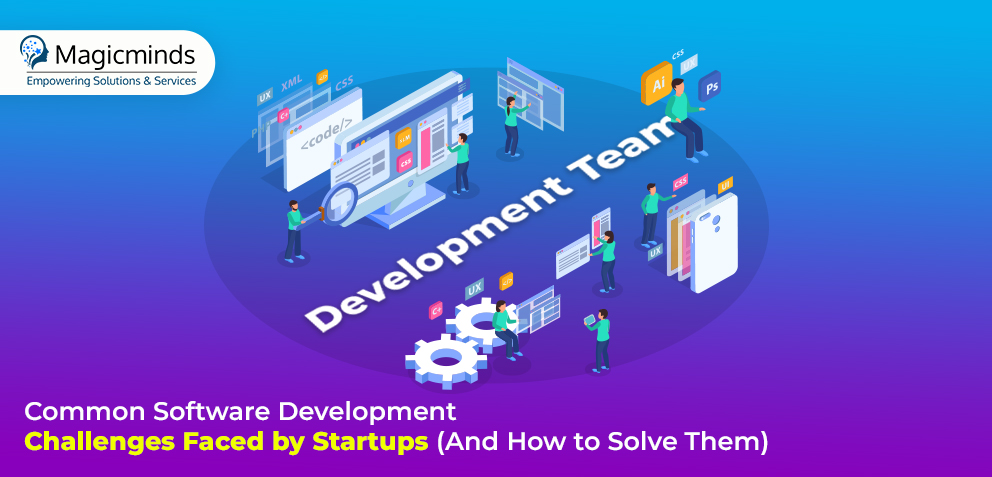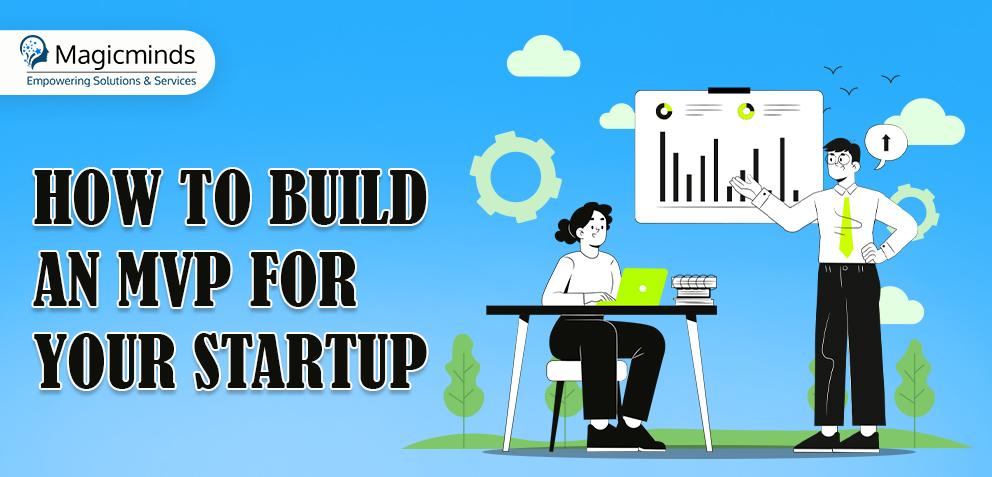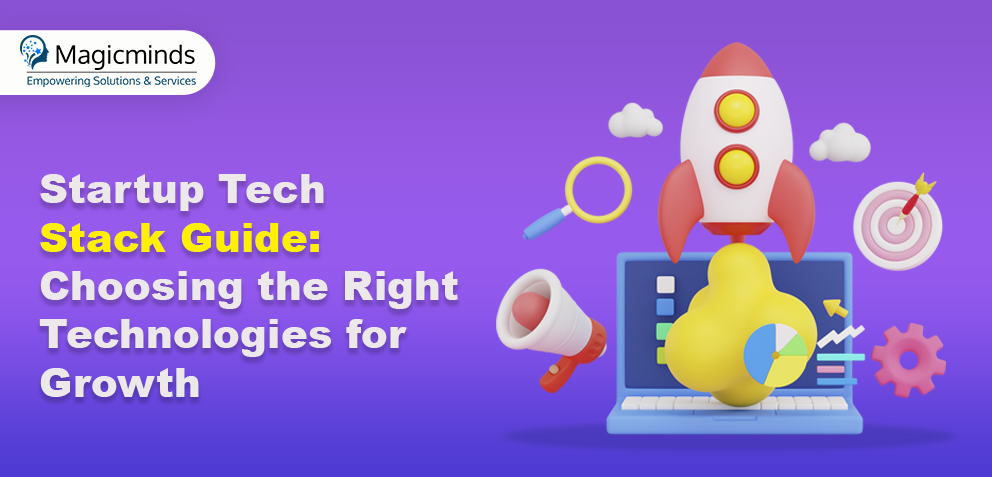Common Software Development Challenges Faced by Startups (And How to Solve Them)

 Stay In-the-loop
Stay In-the-loop
Get fresh tech & marketing insights delivered right to your inbox.
Share this Article
Tags
Category
- .Net Developer
- Adtech
- Android App Development
- API
- App Store
- Artificial Intelligence
- Blockchain Development
- Chatbot Development
- CMS Development
- Cybersecurity
- Data Security
- Dedicated Developers
- Digital Marketing
- Ecommerce Development
- Edtech
- Fintech
- Flutter app development
- Full Stack Development
- Healthcare Tech
- Hybrid App Development
- iOS App Development
- IT Project Management
- JavaScript development
- Laravel Development
- Magento Development
- MEAN Stack Developer
- MERN Stack Developer
- Mobile App
- Mobile App Development
- Nodejs Development
- Progressive Web Application
- python development
- QA and testing
- Quality Engineering
- React Native
- SaaS
- SEO
- Shopify Development
- Software Development
- Software Outsourcing
- Staff Augmentation
- UI/UX Development
- Web analytics tools
- Wordpress Development
There is nothing more exciting than kicking off a startup. But, like every founder knows, even the most optimistic innovators face considerable obstacles when it comes to building software development challenges for their startups. Executing a compelling vision into a tangible product often comes with its set of challenges—stiff budgets, acute talent gaps, and seemingly unending demands to fast-track progress.
If you are a founder or CTO, you should know all about how the software development challenges for startups can help or hinder your prospects. This article will answer these issues and provide strategies that guide your startup’s tech voyage to victory.
Budget and Time Constraints
Every startup faces the problem of tight deadlines and working with a limited financial budget. Innovation-driven startups often struggle to secure extended development cycles and financial resources as they strive to make a significant impact in the industry. A 2022 CB Insights report cites that 38% of startups end up failing due to mismanagement of cash, primarily stemming from poorly estimated operational funds, unexpected expenses, or stagnation.
In the race to meet deadlines, teams can lose sight of the overall product vision, sometimes even resulting in compromising on quality and long-term sustainability, especially when setting aims for scalability.
Solutions
- Track Critical Features: In your first iteration, concentrate on the functions that are essential to test your hypothesis so that you save time and money.
- Development Practices: Incorporate agile strategies into your workflows for iterative publishing and receiving fresh inputs, which can save you a lot in later expensive fixes.
- Use of Cloud Services: Stay away from heavy initial spending on infrastructure by using services from the cloud, like AWS, Azure, or Google Cloud.
- Roadmaps That Are Clear and Easy to Follow: Share detailed budgets and project timelines while monitoring them closely to prevent any unreasonable changes.
Well-defined budgets and scope alongside agility permit faster value delivery over budget constraints for startups.
Custom Software Development for Startups
Build, Launch, and Scale with Magicminds' Expertise.
Hiring Reliable Dev Teams
Dealing with skilled tech employees is a tough task, and an even tougher one for startups when competing with tech giants. The U.S. Bureau of Labor Statistics reports that the growth rate of software developer employment from 2021 to 2031 is 25%, which is astonishingly higher than the average of all other occupations. This intense demand fuels both high salaries and high employee turnover.
Solutions
- Remote Talent Pools: Remote employment from large international markets aids in getting the right balance between cost and quality.
- Clear Employer Branding: Communicate your mission and company culture to appeal to employees who share those values.
- Forward Thinking: Each stage of a project can be a standalone project that you can outsource to other specialized development agencies.
- Uncompromised Talent Acquisition: Keep your most talented employees by providing additional training and career advancement opportunities.
Through these approaches, you can create and combine various scoped work teams that allow you to access a steady, reliable workforce without straining your organization’s resources.
Product-Market Fit Issues
For a software product to work, it has to solve a real user problem, and no amount of marketing can save a feature that is widely irrelevant to users. The majority of startups develop features and capabilities for their products, imagining how those would be important instead of conducting market research. According to CB Insights, nearly a third of startups, around 35%, reported that a lack of demand in the market contributed to their failure.
Solutions:
- Customer Validation: Involve your potential consumers at the assumption testing stage to verify your hypothesis by demystifying it.
- Examined Iterative Creation: Minimize resource commitment towards development using wireframes and clickable prototypes that can be designed to gather user feedback pre-heavy investment.
- Observational Informing: The identity descriptive analytics paired with product usage testing should guide decisions for the next move to make.
- Flexible Strategies: Stay responsive to user needs, market demand, and adaptive trends, and be prepared to implement change-centered iterations or pivots if necessary.
Investing in a genuine targeted focus makes sure your resources are not spent on an ineffective product.
Managing Tech Debt
“Simplicity” is a long-term issue for startup software projects. As your product evolves, legacy code and shortcuts create complex construction problems. These problems accelerate hindered development, introduce new bugs, and increase maintenance overhead. According to a Stripe report released this year, technology debt now absorbs 33% of an engineer’s time, equating to an economic loss of over 85 billion dollars to the world.
Solutions
- Set regular intervals for code reviews to ensure appropriate standards are maintained throughout the process and any potential problems are fixed early on.
- Reduce errors during regression testing by creating unit and integration tests, which will improve testing efficacy.
- Set deadlines for refactoring and cleaning up the code to improve the overall structure on a routine basis.
- Make sure clear instructions are provided to allow for easier onboarding and updates in the future.
Fully resolving outstanding issues before they become more serious helps startups expand more easily later while also avoiding complex rewrites in the future.
Magicminds’ Risk-Mitigation Process
Overwhelmingly, we note that the challenges involved in attempting to develop new software for a startup organization may be better termed as labyrinthine. They are sophisticated enough that any early-stage company would need a specialized, tailored process designed to assist them in maneuvering through such issues. And that is precisely the approach we endeavor to offer through our well-structured plan focused on mitigating risk.
How We Help
- Ensure that the technical vision aligns with the business vision before commencing the coding phase during discovery workshops.
- We encourage that all planning sessions start with an MVP to assist in feature prioritization and rapid validation and thus reduce expenditure.
- As a result of our extensive global network of talent, we provide you the freedom to adjust development resource availability to match your needs at any given time.
- Prudent, vigorous testing of the product and continuous integration ensure easily maintainable code, hence the robust quality of the product.
- All clients are constantly updated to maintain healthy trust with no surprises.
While Magic Minds handles these sophisticated issues, you can focus your effort on growing the business and its profits.
Final Words
When it comes to software development challenges for startups, the hurdles for a company are often multifaceted and complex. Each hurdle, including tech debt and budget constraints, can feel like a potential stopping point. However, with the right strategies—and the right partner—such challenges can turn into opportunities for innovation and growth. If you’re eager to scale your idea into a development-ready product, allow Magicminds to tackle your developmental issues. Get a consultation with us today to find out how we can help your startup succeed, from MVP to a market-leading model. We’ll be ready for any innovation challenge your startup devises. No matter what stage of the project you’re working on, we’ll help you clear all barriers.
Every challenge in honing skills for software development challenges for startups, poses an opportunity to build upon them. When it comes to Magicminds, there is always more to explore. Use these additional materials or contact us to receive bespoke lessons tailored to your needs.
There is nothing more exciting than kicking off a startup. But, like every founder knows, even the most optimistic innovators face considerable obstacles when it comes to building software development challenges for their startups. Executing a compelling vision into a tangible product often comes with its set of challenges—stiff budgets, acute talent gaps, and seemingly unending demands to fast-track progress.
If you are a founder or CTO, you should know all about how the software development challenges for startups can help or hinder your prospects. This article will answer these issues and provide strategies that guide your startup’s tech voyage to victory.
Budget and Time Constraints
Every startup faces the problem of tight deadlines and working with a limited financial budget. Innovation-driven startups often struggle to secure extended development cycles and financial resources as they strive to make a significant impact in the industry. A 2022 CB Insights report cites that 38% of startups end up failing due to mismanagement of cash, primarily stemming from poorly estimated operational funds, unexpected expenses, or stagnation.
In the race to meet deadlines, teams can lose sight of the overall product vision, sometimes even resulting in compromising on quality and long-term sustainability, especially when setting aims for scalability.
Solutions
- Track Critical Features: In your first iteration, concentrate on the functions that are essential to test your hypothesis so that you save time and money.
- Development Practices: Incorporate agile strategies into your workflows for iterative publishing and receiving fresh inputs, which can save you a lot in later expensive fixes.
- Use of Cloud Services: Stay away from heavy initial spending on infrastructure by using services from the cloud, like AWS, Azure, or Google Cloud.
- Roadmaps That Are Clear and Easy to Follow: Share detailed budgets and project timelines while monitoring them closely to prevent any unreasonable changes.
Well-defined budgets and scope alongside agility permit faster value delivery over budget constraints for startups.
Hiring Reliable Dev Teams
Dealing with skilled tech employees is a tough task, and an even tougher one for startups when competing with tech giants. The U.S. Bureau of Labor Statistics reports that the growth rate of software developer employment from 2021 to 2031 is 25%, which is astonishingly higher than the average of all other occupations. This intense demand fuels both high salaries and high employee turnover.
Solutions
- Remote Talent Pools: Remote employment from large international markets aids in getting the right balance between cost and quality.
- Clear Employer Branding: Communicate your mission and company culture to appeal to employees who share those values.
- Forward Thinking: Each stage of a project can be a standalone project that you can outsource to other specialized development agencies.
- Uncompromised Talent Acquisition: Keep your most talented employees by providing additional training and career advancement opportunities.
Through these approaches, you can create and combine various scoped work teams that allow you to access a steady, reliable workforce without straining your organization’s resources.
Product-Market Fit Issues
For a software product to work, it has to solve a real user problem, and no amount of marketing can save a feature that is widely irrelevant to users. The majority of startups develop features and capabilities for their products, imagining how those would be important instead of conducting market research. According to CB Insights, nearly a third of startups, around 35%, reported that a lack of demand in the market contributed to their failure.
Solutions:
- Customer Validation: Involve your potential consumers at the assumption testing stage to verify your hypothesis by demystifying it.
- Examined Iterative Creation: Minimize resource commitment towards development using wireframes and clickable prototypes that can be designed to gather user feedback pre-heavy investment.
- Observational Informing: The identity descriptive analytics paired with product usage testing should guide decisions for the next move to make.
- Flexible Strategies: Stay responsive to user needs, market demand, and adaptive trends, and be prepared to implement change-centered iterations or pivots if necessary.
Investing in a genuine targeted focus makes sure your resources are not spent on an ineffective product.
Managing Tech Debt
“Simplicity” is a long-term issue for startup software projects. As your product evolves, legacy code and shortcuts create complex construction problems. These problems accelerate hindered development, introduce new bugs, and increase maintenance overhead. According to a Stripe report released this year, technology debt now absorbs 33% of an engineer’s time, equating to an economic loss of over 85 billion dollars to the world.
Solutions
- Set regular intervals for code reviews to ensure appropriate standards are maintained throughout the process and any potential problems are fixed early on.
- Reduce errors during regression testing by creating unit and integration tests, which will improve testing efficacy.
- Set deadlines for refactoring and cleaning up the code to improve the overall structure on a routine basis.
- Make sure clear instructions are provided to allow for easier onboarding and updates in the future.
Fully resolving outstanding issues before they become more serious helps startups expand more easily later while also avoiding complex rewrites in the future.
Magicminds’ Risk-Mitigation Process
Overwhelmingly, we note that the challenges involved in attempting to develop new software for a startup organization may be better termed as labyrinthine. They are sophisticated enough that any early-stage company would need a specialized, tailored process designed to assist them in maneuvering through such issues. And that is precisely the approach we endeavor to offer through our well-structured plan focused on mitigating risk.
How We Help
- Ensure that the technical vision aligns with the business vision before commencing the coding phase during discovery workshops.
- We encourage that all planning sessions start with an MVP to assist in feature prioritization and rapid validation and thus reduce expenditure.
- As a result of our extensive global network of talent, we provide you the freedom to adjust development resource availability to match your needs at any given time.
- Prudent, vigorous testing of the product and continuous integration ensure easily maintainable code, hence the robust quality of the product.
- All clients are constantly updated to maintain healthy trust with no surprises.
While Magic Minds handles these sophisticated issues, you can focus your effort on growing the business and its profits.
Final Words
When it comes to software development challenges for startups, the hurdles for a company are often multifaceted and complex. Each hurdle, including tech debt and budget constraints, can feel like a potential stopping point. However, with the right strategies—and the right partner—such challenges can turn into opportunities for innovation and growth. If you’re eager to scale your idea into a development-ready product, allow Magicminds to tackle your developmental issues. Get a consultation with us today to find out how we can help your startup succeed, from MVP to a market-leading model. We’ll be ready for any innovation challenge your startup devises. No matter what stage of the project you’re working on, we’ll help you clear all barriers.
Every challenge in honing skills for software development challenges for startups, poses an opportunity to build upon them. When it comes to Magicminds, there is always more to explore. Use these additional materials or contact us to receive bespoke lessons tailored to your needs.


